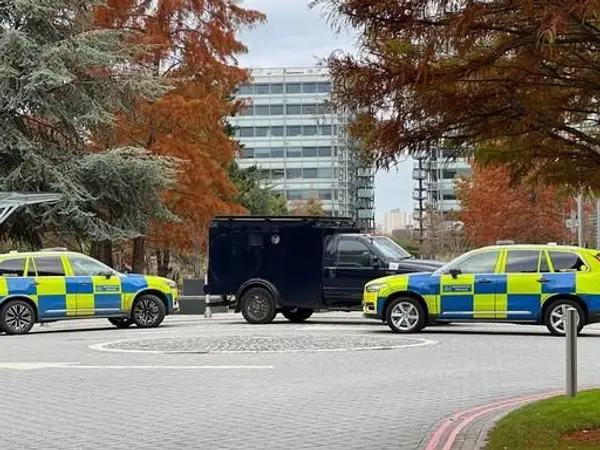Britain's counter-terrorism police chief said on Thursday his officers are increasingly dealing with threats from hostile states such as Russia, China and Iran.
The announcement signaled a shift from focusing on Islamic extremism to dangers posed by adversarial states. The September 11, 2001, attacks on the United States and deadly incidents in Britain made tackling Islamist plots the priority for counter-terrorism police, with resources focused on the threat from home-grown and foreign-based militants.
Matt Jukes, the head of counter-terrorism at London's Metropolitan Police, said there has been a shift in emphasis as foreign states try to corrupt or intimidate people and are involved in murder and kidnap plots in Britain.
"The requirement for us to play a law enforcement part in countering the threats from hostile states is unprecedented," Jukes told reporters at New Scotland Yard, the Metropolitan Police's headquarters.
The police in London arrested a man last Saturday in the vicinity of Iran International’s headquarters at Chiswick Park and indicted him according to section 58 (1) (b) of the Terrorism Act 2000. He appeared to be surveying the office building where the network has its headquarters.
The suspect, Magomed-Husejn Dovtaev (Mohammad-Hussein Dovtaev), 30, an Austrian national, appeared at Westminster Magistrates’ Court on Tuesday and pleaded not guilty. The suspect's name in Russian spelling signals that he is originally from one of the former Soviet republics, more likely from a Muslim-majority country.
The incident came after the Metropolitan police warned the network in November of serious threats originating from Iran against its journalists and provided extra protection.
Iran has long engaged in terror plots against Iranian dissidents and journalists abroad, conducting intimidation, assassination and kidnapping operations.
Investigations involving state threats have quadrupled in the last the last two years and these cases now account for a fifth of counter terrorism officers' times, he said.
Iran has made at least 15 attempts to kidnap or even kill British nationals or individuals based in the United Kingdom regarded by Tehran as a threat, Jukes said.
Last year, British Foreign Secretary James Cleverly summoned Tehran's most senior diplomat over alleged threats by Iranian security forces to journalists in Britain.
The Iranian embassy in London did not immediately respond to a request for comment by Reuters.
Jukes said police were making inquiries after claims China last year was operating "police stations" in major cities around the world, including New York. China has denied the allegations.
Britain blamed Russia for a 2018 nerve agent attack targeting former Russian double agent Sergei Skripal and his daughter Yulia in Salisbury, southern England, a charge Moscow has denied. And this week a security guard at the British embassy in Berlin was in a London court accused of spying for Russia.
The Metropolitan Police's War Crimes Team, which is a unit within its counter-terrorism command, is also dealing with more than 100 referrals from Ukrainian refugees in Britain related to the war with Russia, he said.
Despite the shift in focus, counter-terrorism police's biggest job is still tackling terrorism. Jukes said police disrupted eight late-stage terror plots last year and in some cases they have been investigating children as young as 13.
